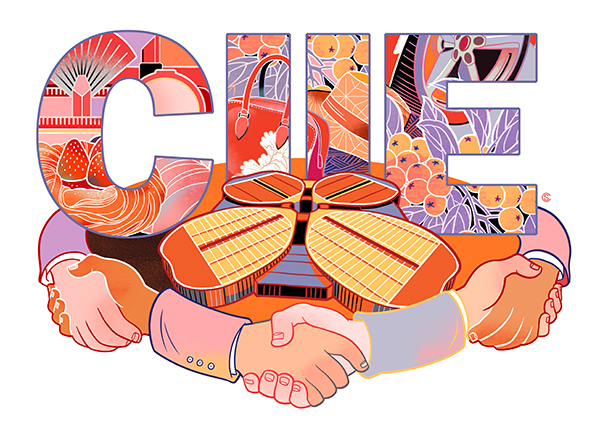
[Photo/China Daily]
By Lin Pan
The ongoing second China International Import Expo in Shanghai proves China remains committed to further opening up in order to build an open world economy in the new era. This is in line with China's pursuit of a new round of high-level opening-up and to further widen market access to the rest of the world.
As President Xi Jinping said in his keynote speech at the opening ceremony on Tuesday, China would open up wider and wider. He announced five measures to further promote high-level opening-up, including further opening up of the market, improving the structure of opening-up and the business environment, and continuously deepening bilateral cooperation and promoting shared development of the Belt and Road Initiative.
Since the launch of reform and opening-up four decades ago, the international division of labor has brought China huge development opportunities and benefits. But despite export-oriented and high-speed growth helping China to become the world's second-largest economy, this mode of development is not sustainable in the long run.
True, after China joined the World Trade Organization in 2001, its exports grew at unprecedented speed-owing to its technological prowess, and low labor and production cost advantage-transforming it into the biggest trading country. But the model of quantitative economic growth also created many problems, for example, overcapacity that led to low efficiency of the resource distribution system, technical bottlenecks and environmental pollution.
Moreover, thanks to the lingering effects of the global financial crisis, global consumer demand continues to be depressed, seriously compromising the efficiency and debt ratio of enterprises. Also, the fact that a large percentage of Chinese goods, according to the laws of economics, have gained larger shares in many markets could lead to trade disputes with other countries. Which would not be conducive to creating China's image as a responsible great power.
With the aim to solve these problems, the Chinese government has put forward a series of targeted measures to increase imports and reduce its trade surplus with other countries. In particular, the Central Economic Work Conference in December 2017 decided to balance foreign trade, by improving the quality of export products, increasing imports and reducing tariffs on some imports. These policy adjustments mean China is shifting from an export-oriented, high-speed growth model to an innovation-driven qualitative development model.
By further opening up its market, China wants to not only share its huge development fruits with other countries but also lower the possibility of trade frictions with other countries and improve the global trade system. Which in turn will help Chinese enterprises to further integrate with the global market and give China greater say in international governance.
As such, the expo is both a major initiative conforming to the development trend and the result of a strategic judgment based on China's development stage. The transformation from high-speed to high-quality development, however, necessitates a higher level of opening-up, in order to build a vigorous system, propel industrial upgrade and raise the development potential.
And the CIIE serves as a perfect channel to further open up the Chinese economy by increasing China's imports, reducing its trade surplus with other economies, helping developing countries to engage in and promote economic globalization, and bringing benefits to all countries. The expo thus sets a good example of China's efforts to deepen trade and economic cooperation with the rest of world.
In more ways than one, the expo meets the expectation of various countries to seek wider access to the Chinese market, so its spillover effects will not only create new development opportunities for China but also facilitate the free multilateral trade system, helping establish an innovative and inclusive global economic system. The expo will also better promote interconnectivity and be beneficial to negotiations on new rules for governing global trade.
The development strategy of the expo is to balance relations between China and other countries, by offering Chinese consumers access to newer and better products from different countries, and providing other developing countries with capital support and employment opportunities by creating new avenues to increase their exports.
To ensure that China meets its goals, it should continue to develop productive forces, expand effective supply and improve total factor productivity, as the expo is expected to contribute more on a systemic level, propel supply-side structural reform and lay a solid foundation for balancing global trade.
The author is a researcher at the Institute of Economics, Chinese Academy of Social Sciences, and a researcher at Shanghai Academy.

 中文
中文





